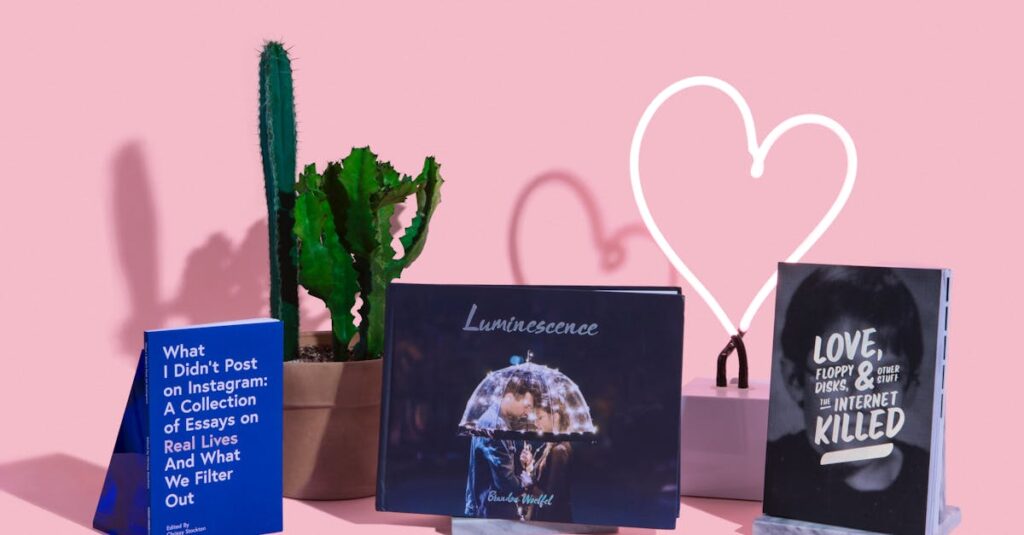I’ve always believed that storytelling is an art form that can transport readers to new worlds and touch their hearts in profound ways. That’s why pursuing a creative writing bachelor’s degree has become such a popular choice for aspiring writers who want to transform their passion into a professional career.
As someone who’s spent years exploring various writing programs I can confidently say that a creative writing degree offers more than just classroom instruction. It provides a structured environment to develop your unique voice master essential writing techniques and build a strong foundation in literary analysis. While many successful writers have made it without formal education the networking opportunities and mentorship available through these programs can significantly accelerate your journey toward becoming a published author.
Creative Writing Bachelor’s Degree
- A creative writing bachelor’s degree is a 4-year program that combines intensive writing practice across multiple genres with literary analysis and professional development training.
- The curriculum typically consists of writing workshops (25%), literature courses (20%), general education (40%), and electives (15%), providing a comprehensive foundation in storytelling techniques.
- Students develop essential skills in narrative techniques, manuscript editing, literary analysis, and industry knowledge through hands-on workshops and mentorship from experienced faculty.
- Career opportunities span various industries, including publishing (editorial roles), marketing (content creation), education (teaching), and media production (screenwriting), with entry-level salaries ranging from $44,000 to $58,000.
- Top universities like Iowa Writers’ Workshop and Columbia University offer distinguished programs with small class sizes (8-15 students) and strong industry connections, while online options provide flexible alternatives.
- The degree focuses on developing practical skills in storytelling, editing, and professional writing, preparing graduates for diverse career paths in the creative industries.
What Is a Creative Writing Bachelor’s Degree
A creative writing bachelor’s degree combines literary study with intensive writing practice across multiple genres. This 4-year undergraduate program equips students with advanced storytelling techniques, critical analysis skills, and practical writing experience.
Core Components
- Workshop-based writing courses focusing on fiction, poetry, creative nonfiction, and screenwriting
- Literary analysis classes examining classic and contemporary works
- Technical writing fundamentals including grammar, style, and editing
- Publishing industry insights and professional development training
Specialized Coursework
- Character development and world-building techniques
- Narrative structure and plotting methodologies
- Poetry forms and experimental writing approaches
- Digital storytelling and multimedia narratives
- Literary magazine production and editing
Program Structure
| Component | Credit Hours | Percentage of Curriculum |
|---|---|---|
| Writing Workshops | 30-36 | 25% |
| Literature Courses | 24-30 | 20% |
| General Education | 45-50 | 40% |
| Electives | 15-20 | 15% |
Learning Outcomes

- Create polished manuscripts in multiple genres
- Apply advanced editing and revision techniques
- Analyze literary works through various critical lenses
- Develop a distinctive writing voice and style
- Navigate the publishing industry’s submission processes
- Book publishing and editing
- Content creation and digital marketing
- Literary agency work
- Teaching and education
- Journalism and media production
This degree program emphasizes hands-on writing practice, peer review, and mentorship from experienced faculty members. Students participate in writing workshops, literary readings, and publishing projects throughout their academic journey.
Core Curriculum and Course Requirements
Creative writing bachelor’s programs incorporate structured coursework across multiple genres with a focus on developing technical proficiency and artistic expression. The curriculum combines foundational writing skills with advanced literary techniques through specialized courses and intensive workshops.
Fiction Writing Workshops
Fiction workshops form the cornerstone of creative writing programs with 12-15 credit hours focused on narrative craft. Students participate in small group sessions critiquing original short stories and novel excerpts while receiving direct feedback from published faculty members. Workshop topics include:
- Plot structure development through scene sequencing techniques
- Character creation using dialogue and descriptive elements
- Point of view selection based on narrative requirements
- Setting development through sensory details
- Genre-specific techniques for literary realistic contemporary horror fantasy
Poetry and Literary Analysis
Poetry coursework spans 9-12 credits exploring traditional contemporary poetic forms through critical reading practice. The curriculum integrates:
- Technical analysis of meter rhyme schemes stanzaic patterns
- Close readings of influential poets across historical periods
- Composition exercises in specific forms like sonnets villanelles haiku
- Workshop sessions for providing constructive peer feedback
- Study of poetic devices including metaphor imagery symbolism
- Personal essay development incorporating reflection research
- Literary journalism practices for feature writing
- Memoir writing emphasizing scene reconstruction dialogue
- Research methods for creative nonfiction projects
- Ethics guidelines for writing about real people events
- Narrative structuring techniques for long-form nonfiction
Career Opportunities With This Degree
A creative writing bachelor’s degree opens doors to diverse career paths in publishing, media, marketing, and education. The specialized skills gained through this degree program translate into numerous professional opportunities across multiple industries.
Publishing Industry Roles
Publishing houses offer specialized positions for creative writing graduates, including:
- Editorial Assistant: Supporting senior editors with manuscript evaluation, fact-checking, and author communication
- Literary Agent Assistant: Reviewing query letters, managing submissions, and identifying emerging talent
- Acquisitions Editor: Scouting new authors and evaluating manuscripts for publication potential
- Copy Editor: Refining manuscripts for clarity, consistency, and technical accuracy
- Production Editor: Coordinating the book production process from manuscript to final publication
- Rights Manager: Negotiating subsidiary rights for books across different formats and territories
Professional Writing Careers
Creative writing graduates excel in roles that demand strong storytelling and content creation skills:
- Content Strategist: Creating editorial calendars and developing brand narratives for companies
- Technical Writer: Producing user manuals, documentation, and instructional materials
- Screenwriter: Crafting scripts for television, film, and digital media platforms
- Ghostwriter: Writing books, articles, and speeches for clients
- Grant Writer: Composing funding proposals for nonprofits and research organizations
- Marketing Copywriter: Developing advertising copy, social media content, and promotional materials
- Journalist: Writing features, articles, and investigative pieces for news organizations
- Digital Content Producer: Creating multimedia content for websites and social platforms
| Career Focus | Key Skills Applied | Average Entry Salary (USD) |
|---|---|---|
| Publishing | Manuscript Analysis | 45,000 |
| Marketing | Brand Storytelling | 52,000 |
| Technical Writing | Documentation | 58,000 |
| Content Creation | Digital Narratives | 48,000 |
| Journalism | Research & Reporting | 44,000 |
Top Universities Offering Creative Writing Programs
Leading institutions across the United States provide exceptional creative writing programs with distinguished faculty mentors publishing industry connections. These programs offer diverse learning environments tailored to different student needs.
Traditional Campus Programs
The University of Iowa’s Writers’ Workshop stands as the oldest creative writing program in America with 17 Pulitzer Prize-winning alumni. Here’s a comparison of top campus-based programs:
| University | Notable Features | Program Length | Class Size |
|---|---|---|---|
| University of Iowa | 17 Pulitzer winners, intensive workshops | 4 years | 12-15 students |
| Columbia University | Publishing connections, NYC location | 4 years | 8-12 students |
| NYU | Cross-genre exploration, urban setting | 4 years | 10-15 students |
| Emerson College | Publishing focus, literary magazines | 4 years | 12-14 students |
| Brown University | Experimental writing emphasis | 4 years | 10-12 students |
Online Degree Options
Digital learning platforms offer flexible creative writing programs with identical curriculum quality to traditional campus experiences. Top online programs include:
- Southern New Hampshire University
- Asynchronous course delivery
- 24/7 writing center access
- Multiple start dates annually
- University of Central Florida
- Real-time workshop sessions
- Virtual writer residencies
- One-on-one faculty mentoring
- Arizona State University Online
- Genre-specific concentrations
- Literary magazine participation
- Publishing industry internships
- Full Sail University
- Multimedia storytelling focus
- Monthly program starts
Skills Developed During the Program

A creative writing bachelor’s degree cultivates essential literary competencies through intensive coursework, workshops, and practical application. These skills form the foundation for professional success in various writing-focused careers.
Storytelling and Narrative Techniques
Students master advanced storytelling techniques that transform raw ideas into compelling narratives. The program develops skills in:
- Plot construction through three-act structure, rising action, climax
- Character development including motivation, arc, dialogue creation
- Scene composition with sensory details, pacing, transitions
- Point of view selection across first-person, third-person limited, omniscient
- World-building through setting, atmosphere, cultural details
- Genre-specific conventions in literary fiction, speculative fiction, drama
- Manuscript assessment focusing on structure, pacing, character arcs
- Line-editing for clarity, concision, rhythm, word choice
- Copy-editing to address grammar, punctuation, formatting
- Developmental editing to enhance plot, character, theme
- Genre-specific editing requirements across fiction, poetry, nonfiction
- Peer review techniques providing constructive critique
- Self-editing strategies for revising multiple drafts
- Research methods for fact-checking and verification
| Editing Level | Focus Areas | Common Tools Used |
|---|---|---|
| Developmental | Plot, structure, character | Story grid, beat sheets |
| Line Editing | Style, flow, clarity | Style guides, thesaurus |
| Copy Editing | Grammar, format | Chicago Manual, Grammarly |
| Proofreading | Final polish | Style sheets, checklists |
More Than Just a Pathway to Becoming an Author
A creative writing bachelor’s degree offers far more than just a pathway to becoming an author. I’ve shown how this comprehensive program equips students with versatile skills that extend well beyond crafting stories.
From hands-on workshops to industry connections and professional development opportunities I believe this degree provides an invaluable foundation for numerous career paths. Whether you’re dreaming of becoming a novelist publishing professional or content creator the structured guidance and practical experience gained through this program can be transformative.
I’m confident that aspiring writers who choose this educational path will find themselves well-prepared to navigate the evolving landscape of professional writing and storytelling. The combination of technical skills creative development and industry knowledge makes this degree a worthwhile investment in your future.



